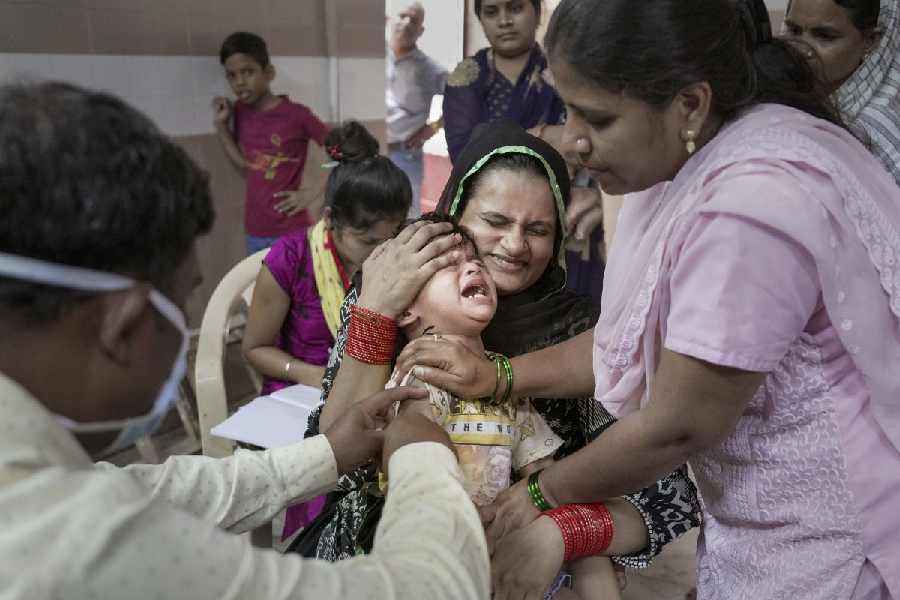Birth by Caesarean-section more than doubles the risk of measles vaccine failure after a single dose, health researchers have reported in a study that they say bolsters evidence for a link between the birth route and immune responses to vaccines.
Their study has found that a single dose of the measles vaccine was 2.6 times more likely to be ineffective in children born by C-section compared to those born naturally. But a second dose generated robust immunity against measles in C-section children.
“The way we’re born — either by C-section or natural birth — has long-term consequences on our immunity,” said Henrik Salje, professor of genetics at the University of Cambridge in the UK who co-supervised the study published on Monday in the journal Nature Microbiology.
Researchers believe that the link between C-section birth and immunity and infections during childhood reflects differences in exposure to bacteria in the mother’s reproductive tract during birth. Children born through C-section are not exposed to the mother’s microbes as they are during natural birth.
Many children do not receive the two doses of the measles vaccine required for long-lasting immunity against this highly contagious disease that spreads through coughs or sneezes and can lead to potentially life-threatening complications. Data from India’s National Family Health Survey 2019-21 has suggested that only around 59 per cent of eligible children had been fully vaccinated, 30 per cent partially vaccinated, and 11 per cent were so-called zero-dose children who hadn’t received a single dose of the measles vaccine.
The study by Salje and his colleagues from the University of Fudan in China, while underlining the criticality of ensuring adherence to the two-dose measles vaccine regimen, also suggests that children who were born through C-section might need to be prioritised for second doses.
“A lot of children don’t end up having their second measles dose which is dangerous for them and for the wider population,” Salje said in a media release. “Infants born via C-section are those we really want to be following up to make sure they get their second measles jab because their first jab is much more
likely to fail.”
India’s proportion of C-section births has increased in recent years. One study based on data from Chhattisgarh and Tamil Nadu, published earlier this year, had found that the prevalence of C-section births had increased from 17.6 per cent in 2016 to 21.5 per
cent in 2021.
The Cambridge-Fudan team examined data relating to a set of 1,505 children aged 12 years or younger and found that 12 per cent of the set of children born via C-section had no immune response to their first measles vaccine compared to 5 per cent of the children born via
vaginal delivery.
An international study in 2020 led by researchers in Australia had found that children born as C-section babies were at increased risk of being hospitalised due to infections. The study had analysed over seven million births from Australia, Denmark, England and Scotland. A 2016 study from Denmark on data from 750,000 children had found that children born through C-section had an increased risk of asthma, laryngitis, and gastroenteritis.










